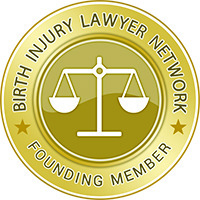The words “ectopic pregnancy” are often enough to strike fear
in the heart of any expecting mother in Texas. While, fortunately, this
type of severe pregnancy complication is rare, it can be extremely dangerous
and even life-altering for the mother. Unfortunately, ectopic pregnancies
cannot be continued, but along the way, they can cause heavy and dangerous
bleeding for the mother.
Healthy pregnancies take place in a woman’s uterus, but an ectopic
pregnancy takes place outside the uterus. Most often in an ectopic pregnancy,
the implantation site is the fallopian tube. However, this type of pregnancy
also can occur in the cervix, ovary or abdomen. There is a danger of rupture
at these sites and tremendous bleeding can occur following rupture; as
a result, ectopic pregnancies at these less-common sites tend to be even
more dangerous. A uterus can expand to accommodate an embryo that is also
expanding; these other sites cannot and, thus, rupture is more likely.
In fact, most deaths related to ectopic pregnancies stem from loss of blood.
During a pregnant woman’s first trimester, ectopic pregnancies account
for ten percent of deaths relating to pregnancy complications. In one
study, fifty percent of the deaths due to blood loss were related to delays
in treatment due to misdiagnosis of the condition. OB/GYN negligence in
the form of a missed or delayed diagnosis can exacerbate the danger of
an ectopic pregnancy.
Rarely, but occasionally, an ectopic pregnancy will occur in a woman who
has previously undergone sterilization. Commonly known as getting one’s
“tubes tied,” this procedure is meant to prevent pregnancy permanently.
While the procedure has a high rate of effectiveness, some women have
still gotten pregnant, despite being sterilized. Of these types of pregnancies,
about 40 percent have been ectopic.
It is very important that a woman who is on oral contraceptives or who
has had her tubes tied seek medical attention immediately if she suspects
a pregnancy. Ectopic pregnancies can occur in either of these situations
and can pose a threat of various types of pregnancy-related injuries.












